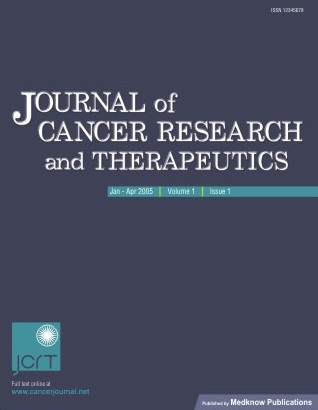
|
Journal of Cancer Research and Therapeutics
Medknow Publications on behalf of the Association of Radiation Oncologists of India (AROI)
ISSN: 0973-1482 EISSN: 1998-4138
Vol. 3, Num. 2, 2007, pp. 131-131
|
Journal of Cancer Research and Therapeutics, Vol. 3, No. 2, April-June, 2007, pp. 131
Book Review
How to read a paper
Nagraj G Huilgol
Department of Radiation Oncology, Dr. Balabhai Nanavati Hospital, S.V. Road, Vile Parle (W), Mumbai - 400 056
Correspondence Address:Department of Radiation Oncology, Dr. Balabhai Nanavati Hospital, S.V. Road, Vile Parle (W), Mumbai - 400 056, nagrajhuilgol@gmail.com
Code Number: cr07034
The Basics of Evidence-based Medicine, 3rd edition, Trisha Greenhalgh BMJ Books,
Publisher: Blackwell Publishing 2006, First Indian Reprint 2007, ISBN 978-1-4051-7094-9
Somerset Maugham once said about the skilled reader, ′It is (s)he who knows how to skip pages without missing the essence of the story.′ It may be true for stories and works of fiction, but scientific literature demands much greater rigor and understanding of the science of research itself. ′How to read a paper′ is an excellent guide book for students, residents and practitioners who lack adequate knowledge of statistical principles involved in clinical trials. The book was written to be a simpler version as the commentary of Dave Sacket′s big red book - clinical epidemiology - a basic science for clinical medicine. But today, ′How to read a paper′ has become a standard reader in many medical schools.
The book is well written. Prose is easy and style is elegant. The topics include issues related to ethics, statistics, evidence-based medicine and implementation of evidence. The book starts with an interesting piece of history. Prof. David Wetherall narrates an anecdote from history: ′Frederick II, Emperor of the Romans and King of Sicily and Jerusalem, who lived from 1192 to 1250 A.D., ordered two of his knights to be fed similarly before one to them was sent hunting. When the knight returned, both the knights were killed to study the contents of their stomachs.′ The objective was to know the effects of hunting and sleep on digestion! Those were the days when whims of the king reigned!
The first chapter opens with two definitions of EBM (evidence-based medicine). Both of them are worth reproducing. EBM is the conscientious, explicit and judicious use of current best evidence in making decisions about the care of the individual patient. Anna Donald and Treesh Greenhalgh, the authors of the book, define as follows: ′Evidence-based medicine is the use of mathematical estimates of the risk of benefit and harm, derived from high quality research on population samples, to inform clinical decision making in the diagnosis, investigation or management of individual patients.′
The book then goes on to deal with various types of papers like those that deal with cost, drug trials, diagnostic tests; and summarizes other papers like those dealing with guidelines and so on. Each chapter is designed to address commonly asked questions in a simple format. The bullets in the box help to summarize the chapter. ′How to search the web′ includes instruction on Boolean and Fuzzy logic, besides web addresses of important sites. There are areas that evoke a chuckle or two. Sample this one: ′If outliners are messing up your calculations, just rub them out. But if the outliners are helping your case, even if they appear to be spurious results, leave them in.′
It is interesting to note that there is no evidence to prove that innumerable talk-based lectures help promote evidence-based medicine! The last chapter paraphrases many of the current controversies. ′Research for me is best surmised by Stone - Ideas are at the centre of all political-( scientific ) conflicts. . . . Each idea is an argument or, more accurately, collective arguments in favor of different ways of seeing the world. (Italics are mine.)′
It is a wonderful guide. Go, grab it!
Copyright 2007 - Journal of Cancer Research and Therapeutics
|
